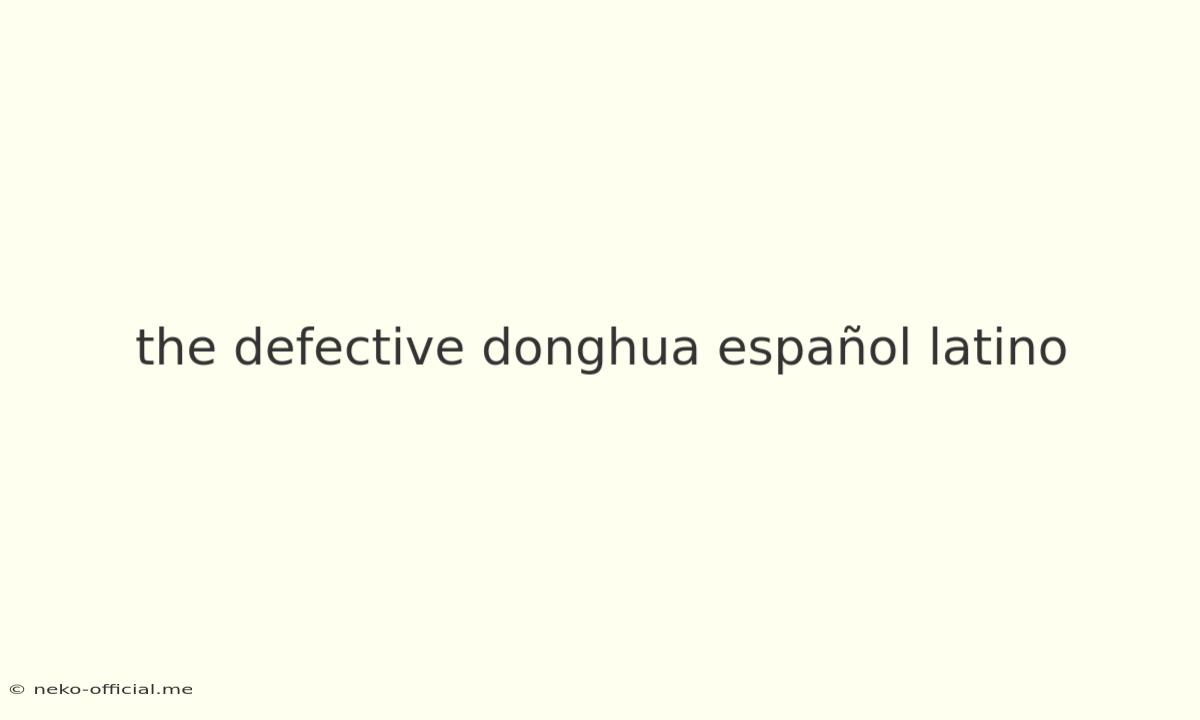The Defective Donghua: A Growing Trend in Spanish Latino Dubbing
The world of anime and donghua is vast and ever-expanding, and Spanish-speaking audiences are increasingly eager to enjoy these animated stories. While there's been a surge in officially dubbed content, a growing trend has emerged: defective donghua. This refers to Spanish Latino dubs of Chinese animated series that are either unofficial, low-quality, or contain significant errors.
What Makes a Donghua "Defective"?
Defective donghua can manifest in various ways:
- Unofficial dubs: These are fan-made translations often created without the original creators' permission. While these can provide access to content not yet officially localized, the quality can be inconsistent.
- Low-quality dubbing: This involves poorly chosen voice actors, inconsistent accents, and a lack of professional direction. It can detract from the enjoyment of the show.
- Translation errors: Mistakes in translating dialogue, names, and cultural references can lead to a disjointed and inaccurate viewing experience.
- Incomplete dubs: Some "defective" donghua are only partially dubbed, leaving viewers to navigate between languages.
Why Are Defective Donghua Becoming Popular?
Several factors contribute to the rise of defective donghua in Spanish Latino audiences:
- Demand for more content: The growing appetite for donghua in Spanish-speaking regions outpaces the supply of official, high-quality dubs.
- Accessibility: Defective donghua is readily available on platforms like YouTube and streaming websites.
- Community involvement: Fans are eager to contribute to the donghua scene, translating and dubbing shows independently.
The Impact of Defective Donghua
The widespread presence of defective donghua has several implications:
- Potential legal issues: Unofficial dubs can violate copyright laws, impacting creators' profits.
- Negative perception of donghua: Poor-quality dubbing can negatively impact the perception of Chinese animation as a whole.
- Discouraging official localization: The success of unofficial dubs might discourage companies from investing in official translations.
The Future of Donghua in Spanish Latino
The rise of defective donghua presents challenges and opportunities. It's crucial for the donghua industry to:
- Increase official localization efforts: Invest in professional dubbing for wider audience reach.
- Collaborate with fans: Engage with passionate communities to foster positive relationships.
- Improve quality control: Address issues with low-quality translations and dubbing.
Ultimately, the future of donghua in Spanish Latino depends on finding a balance between fan enthusiasm and professional production. By acknowledging the trend of defective donghua, the industry can work towards a more inclusive and high-quality experience for all viewers.
